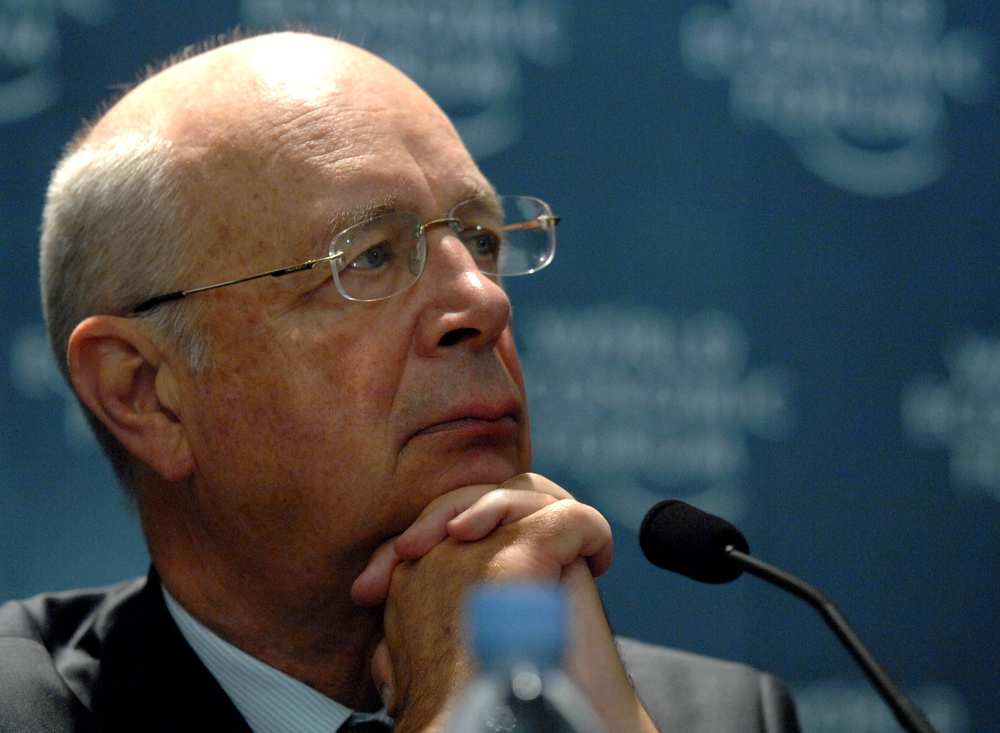A supply chain of events: pandemic prophecies playing out a year after the great reset official launch

Exactly one year to the day after the globalist great reset agenda is officially launched, the pandemic scenarios simulated by the World Economic Forum are prophetically coming into play.
On June 3, 2020, World Economic Forum (WEF) Founder Klaus Schwab declared in the midst of a pandemic, “We need a great reset of capitalism,” and one year later, the globalist agenda is becoming a reality as society and the global economy are in upheaval.
“There is good reason to worry. A sharp economic downturn has already begun […] To achieve a better outcome, the world must act jointly and swiftly to revamp all aspects of our societies and economies” — Klaus Scwhab, June 3, 2020
Just as many government lockdowns are beginning to ease this year, and businesses slowly reopen, major ransomware attacks on the Colonial Pipeline in the US, Ireland’s Health Service Executive, and the world’s largest meatpacker, JBS, have temporarily paralyzed their operations, affecting millions.
Meanwhile, rising inflation is sending consumer prices skyrocketing, and employers are struggling to hire workers with reasonable incentives.
A timeline of the great reset agenda: from foundation to Event 201 and the pandemic of 2020
“There is good reason to worry,” wrote Schwab one year ago today, adding, “a sharp economic downturn has already begun, and we could be facing the worst depression since the 1930s. But, while this outcome is likely, it is not unavoidable.
“To achieve a better outcome, the world must act jointly and swiftly to revamp all aspects of our societies and economies, from education to social contracts and working conditions.”
Revamping all aspects of society and the global economy means the systematic destruction of the old — essentially driving a bulldozer through all previous societal and economical contracts.
As Schwab so succinctly put it, “We must build entirely new foundations for our economic and social systems.”
Pandemic Prophecies
The World Economic Forum has been exceptionally prophetic in preparing for crises just before they happen.
For example, just a few months before the COVID-19 coronavirus outbreak, the WEF, along with the Johns Hopkins and the Bill and Melinda Gates Foundation, held a fake pandemic exercise on October 18, 2019 called Event 201, which specifically simulated a coronavirus pandemic to gauge global preparedness.
“We all know, but still pay insufficient attention to, the frightening scenario of a comprehensive cyber attack, which would bring a complete halt to the power supply, transportation, hospital services, our society as a whole” — Klaus Schwab, July 8, 2020
Many scenarios coming out of Event 201 became reality in 2020 including government lockdowns, social media censorship, global economic crashes, and societal upheaval — all ingredients being necessary to usher in a great reset.
Another crystal ball moment for the WEF came in July 2020, during the Cyber Polygon exercise that simulated preparedness for what Schwab called an anticipated “cyber pandemic.”
Prepping for a cyber pandemic: Cyber Polygon 2021 to stage supply chain attack simulation
“We all know, but still pay insufficient attention to, the frightening scenario of a comprehensive cyber attack, which would bring a complete halt to the power supply, transportation, hospital services, our society as a whole,” said Schwab.
“The COVID-19 crisis would be seen in this respect as a small disturbance in comparison to a major cyber attack,” he added.
In May 2020, Colonial Pipeline, JBS, and Ireland’s Health Service Executive were all hit by major cyberattacks that halted their operations and disrupted society as a whole.
This year, the WEF’s Cyber Polygon exercise will simulate a fictional cyber attack on July 9 with participants from dozens of countries responding to “a targeted supply chain attack on a corporate ecosystem in real time.”
[embedded content]
Given the unelected globalists’ remarkably accurate track record on simulating events shortly before they happen, is the WEF prediction of a cyber pandemic already upon us, or is the worst still yet to come?
According to the WEF, COVID-19 was known as an anticipated risk, and so is its digital equivalent.
What’s more, “A cyber attack with COVID-like characteristics would spread faster and farther than any biological virus. Its reproductive rate would be around 10 times greater than what we’ve experienced with the coronavirus.”
Who benefits the most from government lockdowns and the most recent cyberattacks that have crippled the economy?
The unelected bureaucrats are looking to end fossil fuel subsidies while lowering meat consumption “for the good of the environment,” as they say, among countless other slash-and-burn measures to start anew.
If the globalist goal is to reset the economy and all societal contracts, in part by ushering-in a new era of stakeholder capitalism, cutting back on meat consumption, and lowering dependence on fossil fuels, could the current hardships facing billions of people on the planet further that agenda?
A Supply Chain of Events
If there were ever a series of events that would accelerate the great reset agenda to reset the economy, then the recent cyberattacks on oil and meatpacking, coupled with 15-month lockdowns that have crippled the economy, would fit that bill.
In fact, “One in three US adults say they’re spending more on groceries than they were at the start of 2021,” according to a survey of 2,200 US adults conducted May 17 to 19 for Bloomberg News.
“You will eat much less meat. An occasional treat. Not a staple. For the good of the environment and our health” — World Economic Forum’s “8 Predictions for the World in 2030”
With the public-facing noble intention of combating climate change and achieving “net zero emissions by 2040,” JBS partnered with the WEF on climate change initiatives on April 28, 2021 — just about a month prior to the ransomware attack.
On the very same day, April 28, JBS launched a blockchain platform dubbed the “Transparent Livestock Farming Platform” to accelerate the traceability of its entire cattle production chain.
“All beef cattle suppliers of JBS will sign up to the program by the end of 2025,” according to the announcement.
Just nine days prior to launch of the blockchain platform and six weeks prior to the ransomware attack, JBS announced it had acquired Europe’s third-largest plant-based food group, Vivera, for $530 million, on April 19.
“This acquisition is an important step to strengthen our global plant-based protein platform. Vivera will give JBS a stronghold in the plant-based sector, with technological knowledge and capacity for innovation,” said JBS Global CEO Gilberto Tomazoni, at the time of the acquisition.
“The pandemic represents a rare but narrow window of opportunity to reflect, reimagine, and reset our world to create a healthier, more equitable, and more prosperous future” — Klaus Schwab, June 3, 2020
While the world begins to rebound from government lockdowns during the COVID-19 pandemic, the World Economic Forum and partners have long been taking the issue of climate change to further the great reset agenda.
According to JBS, “Global warming is already having a devastating effect on the more vulnerable global citizens. If we don’t act now, the world will face a climate disaster.”
Acting swiftly to take advantage of a global crisis is a hallmark of the WEF.
When Schwab officially launched the great reset agenda a year ago today (which wasn’t the first time he called for it), the countdown on the COVID-19 hysteria and chaos had already begun, and there was only a narrow window of opportunity to bring the great reset into fruition.
Why else would the WEF founder declare, “The pandemic represents a rare but narrow window of opportunity to reflect, reimagine, and reset our world to create a healthier, more equitable, and more prosperous future” if he didn’t believe in the old adage: never let a good crisis go to waste?
Brazil says ‘no’ to great reset: ‘Totalitarian social control is not the remedy for any crisis’


